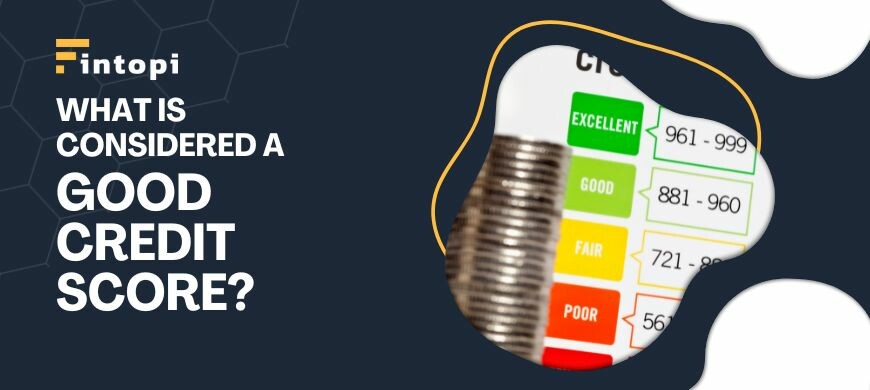Unlock the Benefits of a Good Credit Score Today
Having good credit is essential for obtaining loans, mortgages, and other financial products. It can also help you get better rates on insurance policies or even open up new job opportunities. A good credit score (670 to 739) will give lenders the confidence that you are responsible for your finances and able to pay back any money they lend out in full and on time.
But what exactly does it take to achieve this level? In this article, we’ll explore how having a high-quality credit score can benefit people.
What is Considered a Good Credit Score?
FICO scores range from 300 to 850 points, while VantageScores range between 601–990 points. It depends upon which model is used by the lender when evaluating an individual’s application for financing or loan approval.
Generally speaking, scores above 670 indicate “good” creditworthiness. However, some lenders may require higher minimum thresholds, such as 720+ before approving applications due to their own internal risk assessment criteria being met first before granting access to funds/loans.
The average U.S. consumer has achieved an overall rating of 703 according to Experian data released in 2019. This indicates most people have managed to maintain relatively healthy levels despite economic downturns over the past decade-plus period.
If we want to gain maximum benefits associated with maintaining excellent ratings, then there’s a need to ensure reports remain clean and free of possible inaccuracies, and updated regularly at least once a year, for financial literacy within a good credit score.
How to Achieve and Maintain an Excellent Credit Score
There are several steps one must follow to obtain the highest quality results, which are to:
- Pay bills promptly every month. This means making payments at least a few days in advance of the deadline to avoid late fees, charges, interest, and penalties, as they could otherwise incur negatively in the report.
- Keep balances with low relative limits. Doing so helps prevent the utilization ratio from becoming excessively high, thus reducing the chances of getting into debt trouble. Monitor activity closely, watch changes taking place, and make corrections to become aware of discrepancies.
- Dispute inaccurate data. If inaccurate information is present, immediately contact the creditor dispute resolution department.
- Avoid applying multiple times with little intervals. Avoid closing unused cards unless there is absolutely no choice left because doing so might lower the total number of revolving lines, thereby decreasing the potential to increase future borrowing power significantly.
- Use secured card responsibly. Check status periodically, review progress made, and build a positive history. Utilize services like identity theft protection alerting systems to guard against fraudsters that are stealing personal details.
- Maintain a long credit history. The longer your credit history, the better your credit score. Avoid closing old accounts, even if you don’t use them anymore.
- Apply for credit sparingly. Applying for too much credit at once can hurt your credit score. Only apply for credit when you need it.
- Be cautious about co-signing. Co-signing a loan or credit card for someone else can put your credit at risk if they don’t make payments on time.
- Communicate with your creditors. If you’re having trouble making payments, contact your creditors and try to work out a payment plan. This can help prevent damage to your credit score.
Overall, maintaining a good credit rating requires responsible financial management and staying on top of your credit report. By following these best practices, you can increase your chances of getting approved for credit and securing favorable interest rates.
What are the Rewards of Keeping Up with a Good Credit Score?
Having a solid record of payment histories shows the creditor’s trustworthiness and reliability in paying debts off in a timely manner. It means you’re likely to receive preferential treatment in part regarding offers, deals, discounts, promotions, and related goods and services compared to those who don’t possess similar qualities.
Conversely, poor standing means opposite effects occur instead, i.e., less attractive options presented to the person concerned, ultimately leading to increased costs incurred and resulting in a lack of proper maintenance. It’s just as crucial to adhere to industry standards.
Conclusion
Keeping a close eye on records will go a long way, helping reach financial goals when it comes to reaching great credit scores. With everything accounted for, lenders are more likely to approve your loan application if you have a good credit score, as they see you as a lower-risk borrower.
FAQs
Q: What happens when my score drops suddenly?
A: If a sudden drop occurs, it’s usually a sign of an underlying problem existing somewhere in the system, which requires attention. A sudden drop in the credit score can make it more difficult to get approved for credit cards, loans, and other forms of credit. Lenders may view you as a higher risk borrower and be less willing to extend credit to the person.
Q: Does age factor play a role in determining someone’s rating?
A: Older people tend to fare much better than younger counterparts. Meanwhile, If an older person has not been active in the credit market for a long time, they may have a limited credit history, which can negatively impact their credit score.
Q: Can I use different scoring models to compare my results side by side?
Yes, one can use different credit scoring models to compare credit results side by side. Different credit scoring models may use different algorithms and weight factors to calculate credit scores, so comparing scores from different models can provide a broader view of your creditworthiness.



